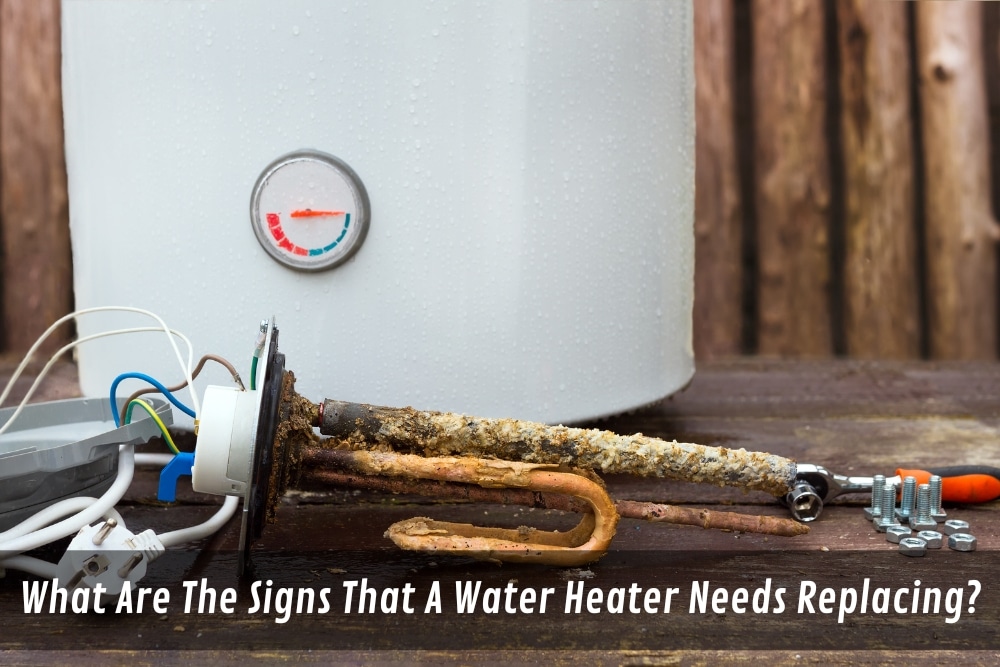A water heater is a critical household appliance that is used daily to heat water for various purposes, including showering, cooking, and washing clothes. Like any other appliance, water heaters have a lifespan and need replacement when they start malfunctioning. Knowing the common warning signs that indicate your water heater needs replacing can help you avoid extensive damage, and property damage, and save you money on repair costs.
The most common type of water heater is the conventional water tank that stores and heats a large amount of water. The tank is filled with water and heated by a heating element, which can be checked by the guide to electric heating or gas heating. The heated water is stored in the tank and delivered to the tap when needed. Tankless heaters, on the other hand, heat water on demand and do not store water in a tank.
Some people assume that their heaters are broken even before reading the manual. Make sure that you know how tankless water heaters work first. It can save you time and money on repair and maintenance.
Just the same, here are some telltale signs that your water heater needs replacing:
Age of the water heater
The age of your heater is the clearest indicator that it may need replacing. Most standard heaters have a lifespan of about 10 to 15 years. If your current heater is over 10 years old, it may be time to consider replacing it.
Lack of hot water
If your hot water supply is inconsistent, and you find yourself taking a cold shower, this is a bad sign. It could mean your water heater is not heating the water adequately or is malfunctioning.
Rusty water
If the water coming from your hot water tap is discoloured, this could be a sign of a buildup of sediment or rust in the water heater tank. A rusty anode rod or sacrificial anode rod can cause a metallic taste, and it is important to call hot water experts to replace these.
Noisy water heater
If your water heater is making unusual noises, this could be a sign of hidden issues. Noisy heaters could be caused by several factors such as the buildup of sediment, expansion issues, and connection issues. Sediment build-up is a common cause of noisy water heaters. Sediment building up in the tank can cause the heating element to make loud noises as it heats up the water. This could also result in water leaks, property damage, and a reduction in the efficiency of the heater.
Expansion issues can also cause noisy water heaters. As the metal tank heats up, it expands, and this expansion can lead to loud popping sounds. Connection issues such as loose or damaged water pipes and valves can also cause noisy heaters. Loose water pipes can vibrate and make a rattling or clanging sounds, while a faulty pressure relief valve can make a hissing sound. It is crucial to identify the cause of the noise as soon as possible and call for professional plumbing services.
Water leaks
If you notice water leaks around the heater tank or connections, this could be a sign of a connection issue or a cracked tank. Leaks can cause extensive damage, and it is important to call a licenced plumber to fix them immediately.
Increased energy bills
If your energy bills are higher than usual, this could be due to the extra energy required to heat the water or an expansion issue.
Sediment buildup
A buildup of sediment can cause the heating element to malfunction and can also lead to corrosion issues. Sediment buildup can also result in cloudy or discoloured water.
Inadequate hot water demand
If you find yourself running out of hot water during a 10-minute shower or after doing a load of laundry, it could mean that your current heater is not meeting your hot water demand.
Frequent repairs
If you find yourself frequently repairing your heater, it could be a sign that it’s time for a new one. A functional water heater should not require constant issues and repairs.
Lack of annual maintenance
Lack of annual maintenance is a common issue that can lead to the failure of a water heater unit. Annual maintenance and service are essential for all types of heaters, including tankless, and conventional water tanks, reviewing the overview of gas water heaters, and electric water tanks. Regular maintenance helps to keep them functioning optimally, extend their lifespan, and prevent potential safety hazards.
When heaters are not serviced annually, sediment buildup can occur, causing extensive damage to the heating element, tank, and other metal elements in the unit. Sediment build-up can also lead to a reduction in energy efficiency, which can result in higher energy bills. Moreover, lack of maintenance can cause the sacrificial anode rod to corrode. It can lead to a corroded tank and leaks before replacement.
The pressure relief valve, the electrical thermostat, and the fuel valve also require annual service to ensure they are functioning properly. If the pressure relief valve is faulty, it can lead to excessive pressure, causing the water tank to explode. A faulty electrical thermostat can cause overheating, leading to property damage, and even fire hazards. Similarly, a faulty fuel valve can cause gas leaks, which can be dangerous to the occupants of the household.
If you are experiencing any of these common warning signs, it is a perfect time to call a professional plumbing service. Hot water experts can assess your current water heater. Based on the type of heater, they can suggest the best solution. A professional plumber can recommend a cost-effective and energy-efficient water heater replacement or a simple repair to solve the problem.
In conclusion, a water heater is a critical household appliance that requires proper maintenance and regular servicing to function optimally. The signs that a heater needs replacing vary depending on the type and the age of the unit. While some signs may be obvious, such as leaks or strange noises. Others may be less apparent, such as a buildup of sediment or discoloured water. When faced with constant issues, high energy bills, or insufficient hot water supply, it may be time to consider a replacement.
Always consult with a hot water expert. You can ask for a professional opinion and assistance in selecting the right type of water heater for your household. With proper maintenance and care, a new water heater can provide you with years of reliable and cost-effective hot water supply.


